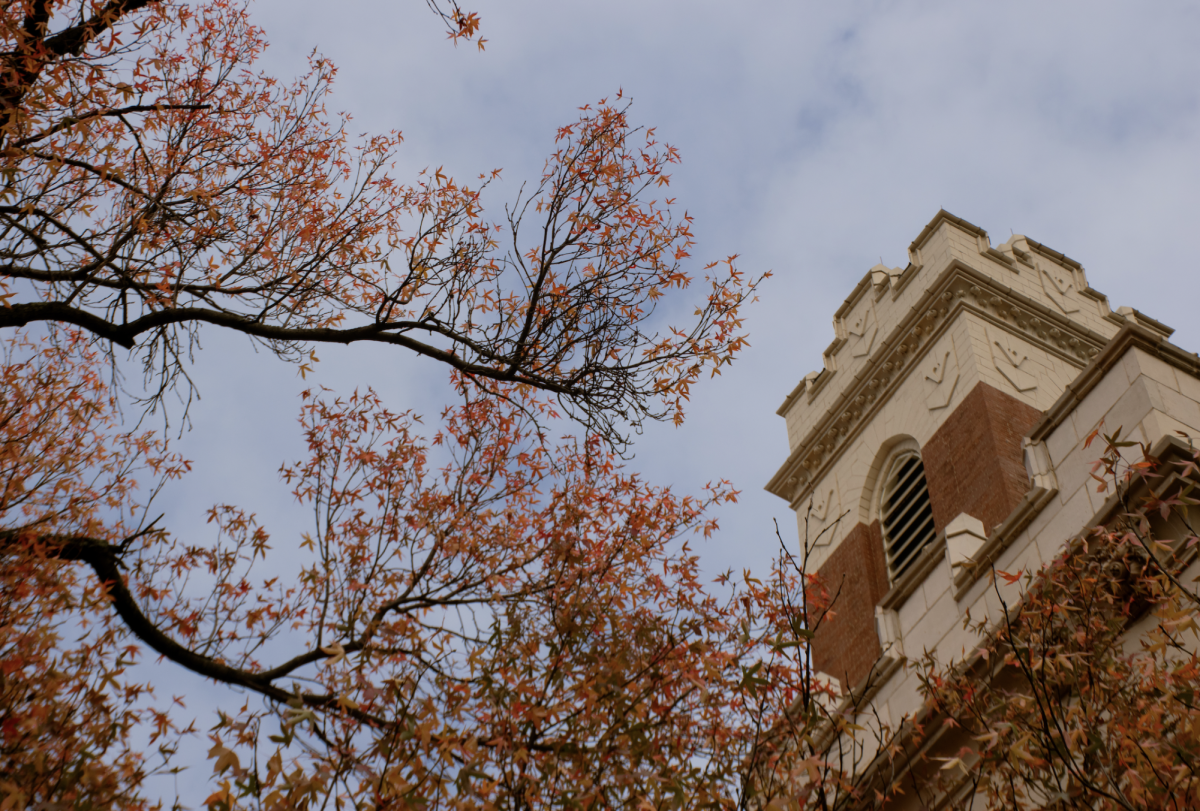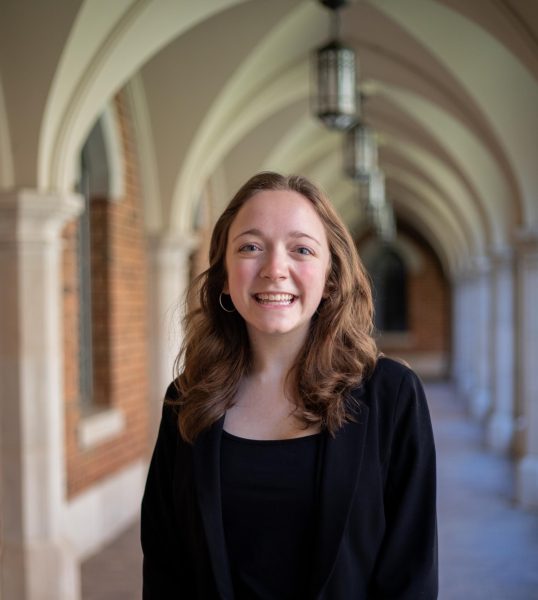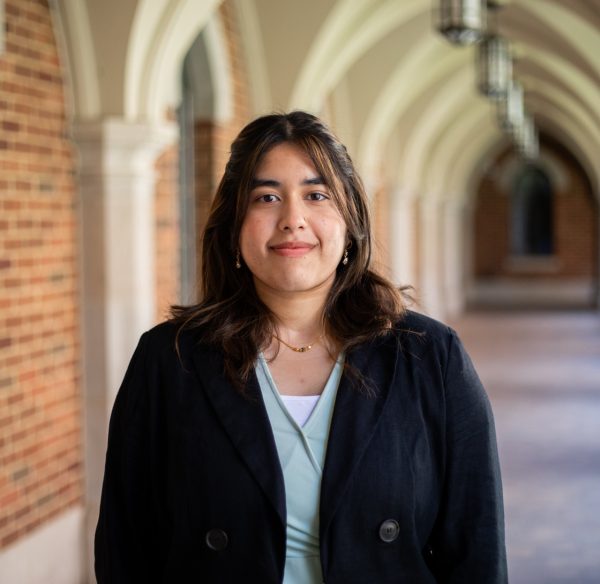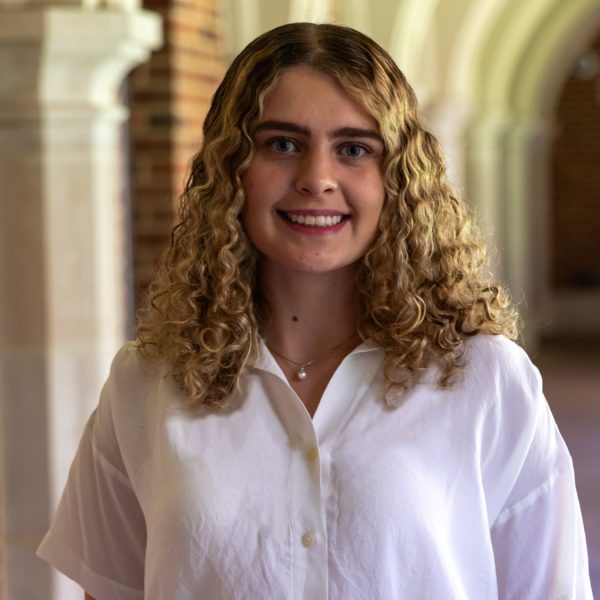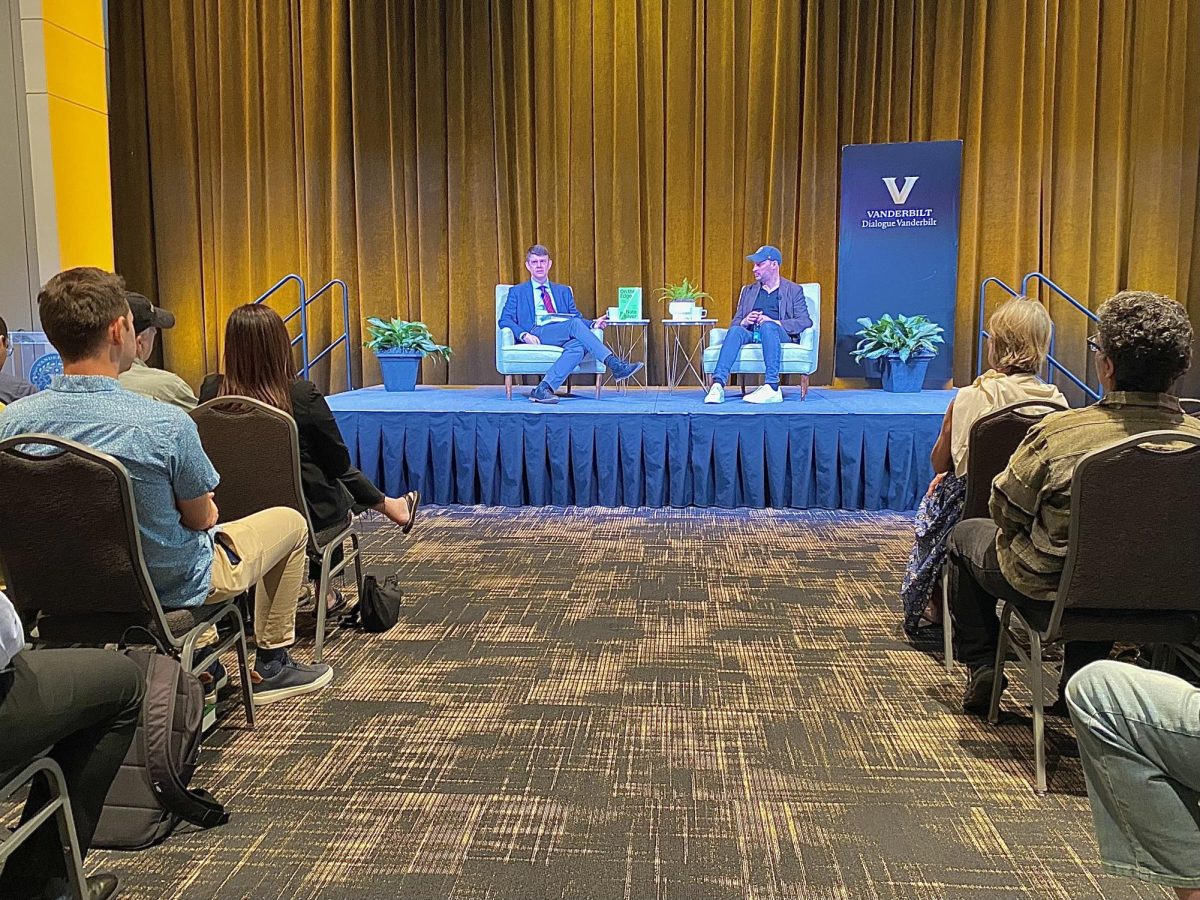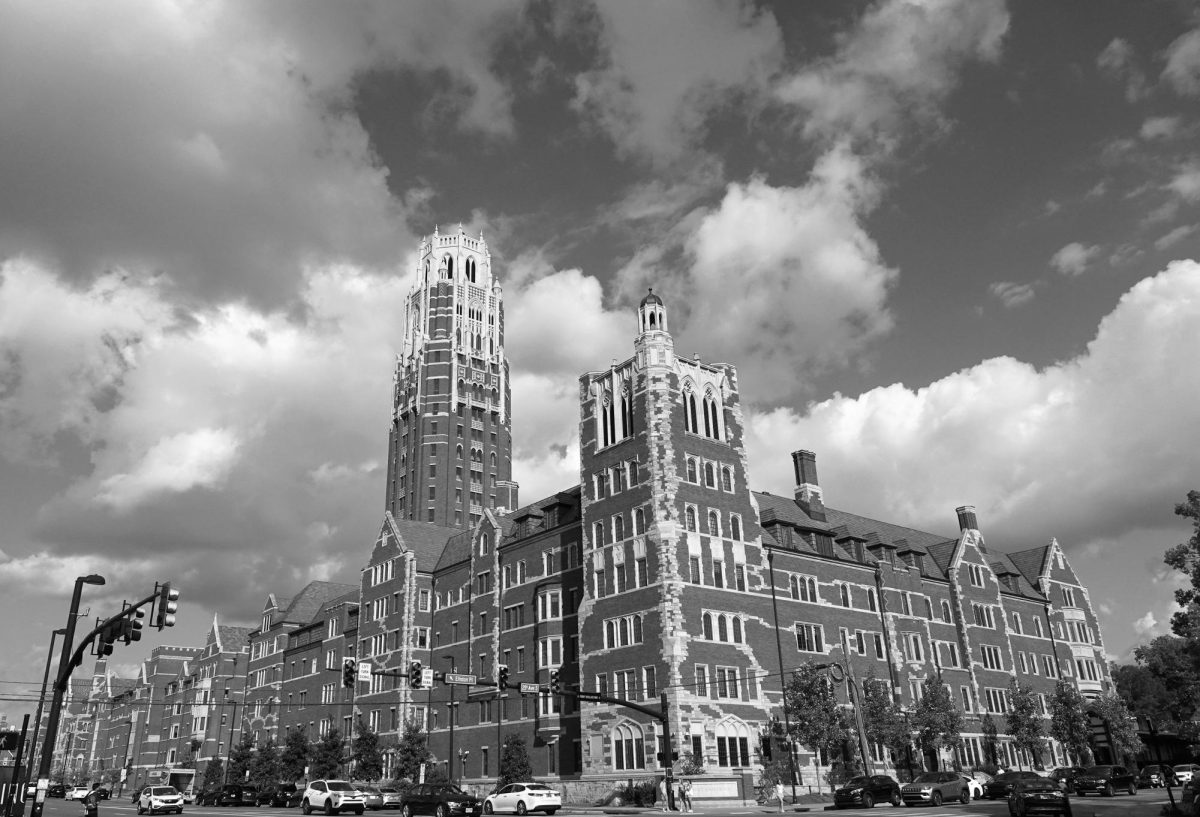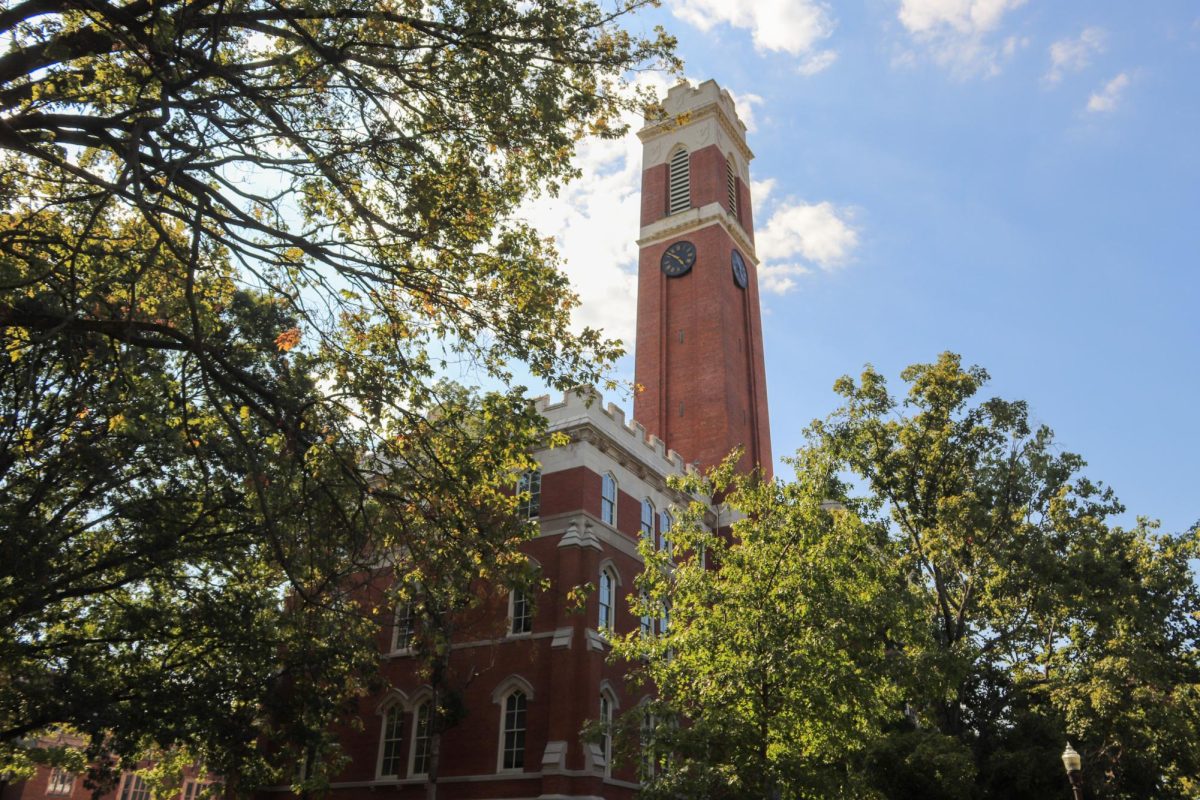Chancellor Diermeier announced this year’s lineup of speakers for Dialogue Vanderbilt in his Jan. 8 email to the Vanderbilt community. Students and alumni responded to the lineup with both enthusiasm and criticism as some pushed for more representative voices to be included.
According to Diermeier, this year’s speakers are meant to encourage engagement with a variety of issues, including the conflict in the Middle East. The events planned are intended to create forums for discussion where freedom of speech is prioritized in a respectful manner.
A group known as Vanderbilt Alumni for Palestine publicly responded to the Dialogue Vanderbilt speaker lineup through an Instagram post on Jan. 13. In the post, the group criticized Rabbi David J. Wolpe, Jonathan Rauch, Melissa Harris-Perry, Liz Cheney, Sam Freedman and Anne Applebaum for statements and online actions they believe to be in favor of Israel’s actions in Gaza. The group also recently published a letter to Vanderbilt administration and student organizations calling for stronger support of Palestinian, Muslim and Arab students.
Vanderbilt AFP said they believe the Dialogue Vanderbilt speakers do not accurately support the neutrality that Chancellor Diermeier has promoted.
“The overwhelming majority of those invited to speak have a track record of being, at minimum, sympathetic to the colonial project, and at their worst explicitly encouraging the killing and displacing of Palestinians,” Vanderbilt AFP said in a message to The Hustler.
Junior Zander Schwartz, president of Dores for Israel, said he thinks the speakers are open to hearing different perspectives, which he believes is the main goal of Dialogue Vanderbilt.
“At first glance, it seems like the Chancellor picked from a wide range of speakers ranging from progressive to conservative. I see one common theme between them: each is open and willing to listen to those they disagree with,” Schwartz said in an email to The Hustler. “That, I believe, is what is important in a dialogue initiative, especially one aimed at bridging divides between disparate campus communities.”
In response to the differing opinions, a university representative said in an email to The Hustler that Dialogue Vanderbilt was created to initiate discourse around “political polarization” and to have discussions surrounding “challenging and controversial” topics in a civil manner.
“We expected criticism of and/or disagreement regarding the events, and this feedback too is part of the civil discourse and debate we espouse,” the email reads. “We believe the uninhibited exchange of ideas and vigorous debate leads to transformative education and path-breaking research.”
Senior Nathan Applebaum, president of Vanderbilt Hillel, agreed with the university while emphasizing the need to maintain certain boundaries when hosting these events.
“Vanderbilt creating opportunities like these dialogue events is a crucial part of the student experience — it generates spaces where students can learn about and wrestle with important issues from a variety of angles,” Applebaum said in a message to The Hustler. “But, equally as important, I also think that we need to be cautious to stay within boundaries that will allow for productive and respectful learning — avoiding environments that are hostile or intimidating to Vanderbilt students.”
First-year Jason Vadnos, a student ambassador in the Open Dialogue Visiting Fellows Program, expressed excitement about Dialogue Vanderbilt and said the speaker events are not meant to elevate particular political beliefs.
“We hope to model the process of open dialogue to the Vanderbilt, Nashville and national community, inviting them to actively seek out the diverse voices which come together to share, inform, debate and sharpen our different viewpoints, enabling us to more holistically and nonjudgmentally approach complex societal issues like gun safety, cancel culture and affirmative action,” Vadnos said in a message to The Hustler.
In response to Vanderbilt AFP, Vadnos said the Open Dialogue speakers were chosen at least a year in advance, many of them before Hamas’s Oct. 7 attacks, and that their attitudes toward the conflict were “unrelated to their selection.” He also noted that Rabbi Wolpe — who was highlighted in Vanderbilt AFP’s post — was brought to campus by the Vanderbilt Project on Unity and American Democracy, which is separate from the Open Dialogue Visiting Fellows Program.
“The Open Dialogue Visiting Fellows Program was not designed as a response to fast-paced current events (although that is undoubtedly important), nor as a platform for particular views, and attempting to cast our work in that light fails to reflect our actual goals and values,” Vadnos said.
Vanderbilt AFP explicitly pointed to the “utter lack of representation” concerning the absence of a speaker from a Palestinian background. The group’s Instagram post listed several speakers they believe would better promote an open dialogue regarding Palestine, including Linda Sarsour, Nihad Awad and U.S. Representative Rashida Tlaib.
“There is not a single speaker that can talk from the Palestinian perspective: what it means to live under occupation, to be displaced from your homeland, the experience of having soldiers shoot tear gas at you or coming into your home at night and terrorizing your family,” Vanderbilt AFP said.
The Unity Project recently announced Maha Elgenaidi as the next speaker in its faith-based dialogue series. Scheduled to speak with Vanderbilt Divinity School Dean Yolanda Pierce on Feb. 22, Elgenaidi is the founder and executive director of Islamic Networks Group which aims to promote peace and shared understanding between Muslims and other religious, racial, ethnic and cultural groups.
Representatives of the Muslim Students Association, granted anonymity for safety concerns, said they believe the university is deviating from its policy of neutrality by omitting Palestinian narratives.
“We are extremely disappointed but not surprised at the deliberate decision made by administration to exclude Palestinian voices during a genocide of their own people, despite a commitment to ‘institutional neutrality,’” the representatives said in a message to The Hustler.
A representative from Students for Justice in Palestine, also granted anonymity for safety concerns, echoed these concerns, calling the university’s commitment to neutrality “hypocritical” and part of a “continuous undermining” of students of Palestinian and Arab heritage.
“The dialogue is dominated by speakers that have exhibited a strong stance against Palestinians’ right to exist,” the representative said in a message to The Hustler. “How are members of our community expected to feel safe and heard when they have deliberately chosen to exclude our voices?”

